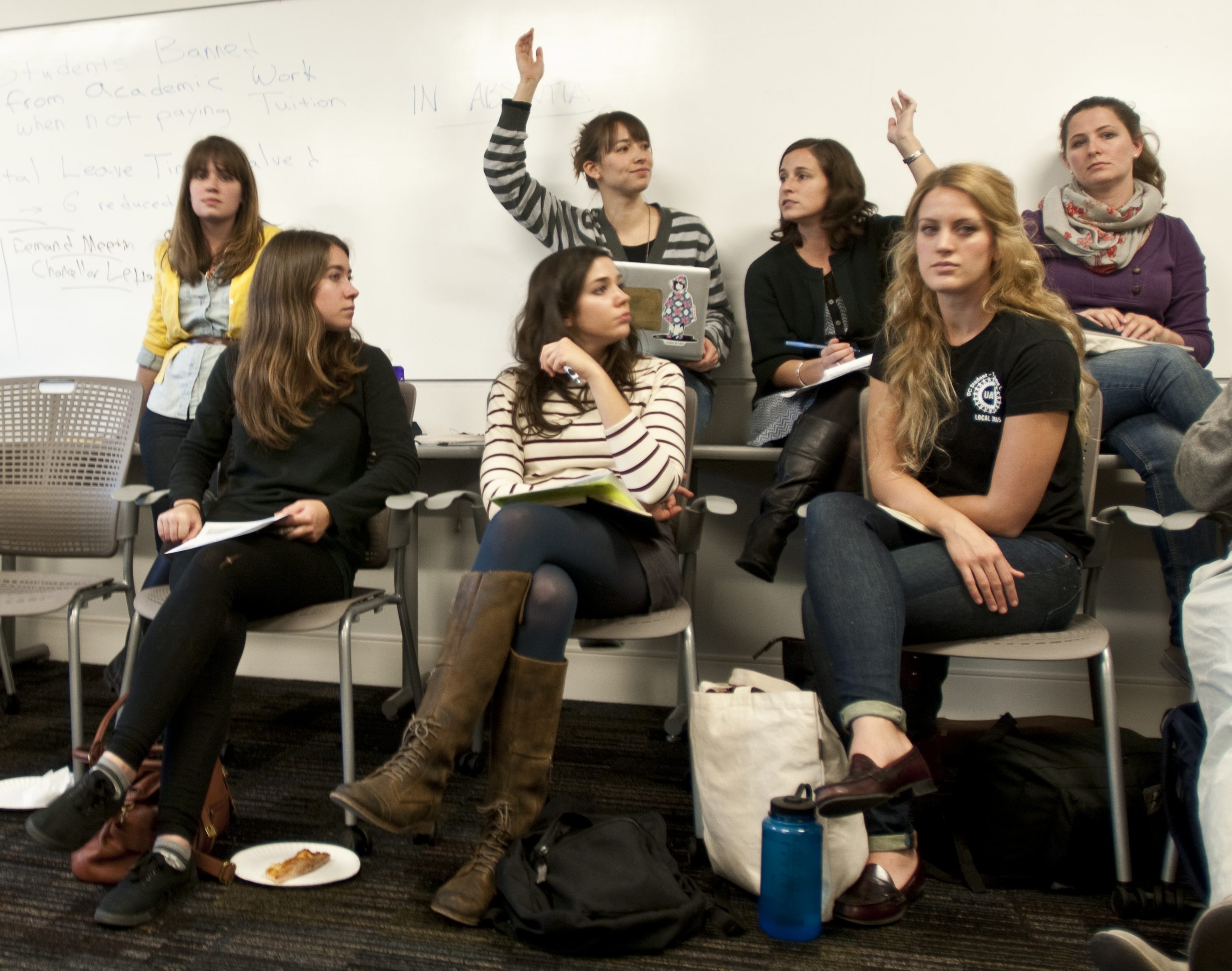Graduate students discussed multiple ways to take action against recent changes to UCLA’s leave of absence policy at a town hall meeting Wednesday afternoon.
This quarter, UCLA stopped accepting thesis or dissertation writing as valid reasons for taking time off to help graduate students complete their degree paths on time, said April de Stefano, director of academic services in the UCLA Graduate Division.
The change hinges on the difference between two separate absence policies ““ taking a leave of absence and being in absentia.
UCLA’s current leave of absence policy only permits graduate students to take a maximum of three quarters off at no cost in the case of a family, medical or military obligation, an emergency or outside employment. Before, students could take a leave of absence to work on their dissertations for up to six quarters.
Now students are expected to use the in absentia leave when they take courses or conduct research outside of California, and must pay 15 percent of their UC tuition and student fees to remain a student.
The Graduate Student Association Social Sciences Council and the UC Student-Workers Union held the meeting to gauge student opinions about the policy change and to determine if students wanted to take collective action in response, said Cody Trojan, recording secretary for the UC Student-Worker Union and organizer of the town hall.
At the town hall meeting, about 60 graduate students ““ mostly from the humanities and social sciences ““ voted almost unanimously to take action against the change.
“People really don’t like (the policy),” Trojan said. “No one was consulted. When it happened people were chafed because it was just handed down and imposed.”
The change was applied with the intent of encouraging continuous enrollment and uniform progression toward a graduate degree, since many graduate students may find it harder to return to campus after taking a leave of absence, de Stefano said.
Many graduate students at the meeting expressed outrage and insecurity about the restrictions the policy will directly impose on their studies and indirectly on their personal lives. Graduate students who choose to do research in state must pay full tuition, and cannot get the discounted rate offered through the in abstentia policy.
Devin McCutchen, a graduate student in history, attended the town hall because he said the policy change negatively affects his ability to finance his research in San Francisco. McCutchen said studying in-state puts him at a financial disadvantage because he will need to pay for full tuition, as opposed to graduate students who choose to do research outside the state. He added that he thinks the policy change will affect a vast number of students, including undergraduates.
“We want to stand up in a way that is going to prevent us from diminishing the quality of the way we teach undergrads,” McCutchen said. “The graduate teaching is going to fall apart.”
Carolina Beltran, a graduate student in the department of Spanish and Portuguese, said the new leave of absence policy may have crippling effects on her future research because it interferes with her personal obligations. Beltran, a single parent, needs to study abroad for language training, she said. “Going abroad is not cheap. (The administration is) putting us on a fast track, shortening our time to get our degrees,” Beltran said.
A representative from the Graduate Student Resource Center, one of the only non-graduate students in attendance, came to listen to graduate student concerns with the policy.
“We’re not in a position to agree or disagree,” said Christine Wilson, director of the Graduate Student Resource Center, who sent the representative to the meeting on her behalf. “We’re here to help. This was a student meeting and we want to know what concerns graduate students.”
By the end of the meeting, graduate students decided to draft a letter to Chancellor Gene Block, to write and sign a petition and potentially put an advisory referendum on the ballot during the spring GSA elections against the policy change. The students also plan to publicize the controversy with a YouTube video and to meet personally with the chancellor to demand a repealing of the policy.
Nicole Robinson, GSA vice president of academic affairs, was the sole GSA officer in attendance.
“We’re teaming up because this is a quality of life issue detrimental to families. Telling graduate students to finish research or drop out will decrease UCLA’s prestige,” she said.
The graduate students plan to campaign during the third week of winter quarter so they can have enough time to organize, Trojan said. As of now, the new policy remains intact.
